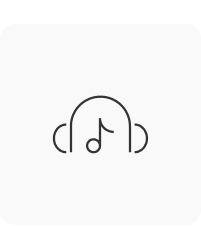"Take Your First Step into Korean Learning!"
Main topics of the Level 1 course:
- Basic greetings
- How to count numbers in Korean
- Basic grammar for forming your first Korean sentences
- Present and past tense
- How to say "who", "why", and "how" in Korean
Table of Contents
![]() Average lesson length: 13 minutes
Average lesson length: 13 minutes
Lesson 1. Hello. Thank you. / 안녕하세요. 감사합니다.
Lesson 2. Yes. No. What? / 네. 아니요. 네?
Lesson 3. Good-bye. See you. / 안녕히 가세요. 안녕히 계세요. 안녕.
Lesson 4. I’m sorry. Excuse me. / 죄송합니다. 저기요.
Lesson 5. It’s me. What is it? / 저예요. 뭐예요?
Lesson 6. What is this? This is … / 이거 뭐예요? 이거…
Lesson 7. This, That, It / 이, 그, 저
Lesson 8. It’s NOT me. / 아니에요.
Lesson 9. Particles for Topic and Subject / 은, 는, 이, 가
Lesson 10. have, don’t have, there is, there isn’t / 있어요, 없어요
Lesson 11. Please give me. / 주세요.
Lesson 12. It’s delicious. Thank you for the food. / 맛있어요. 잘 먹겠습니다. 잘 먹었습니다.
Lesson 13. I want to … / -고 싶어요
Lesson 14. What do you want to do? / 뭐 하고 싶어요?
Lesson 15. Sino-Korean Numbers / 일, 이, 삼, 사
Lesson 16. Basic Present Tense / -아요, -어요, -여요
Lesson 17. Past Tense / -았/었/였어요 (했어요)
Lesson 18. Particles for Location / 에, 에서
Lesson 19. When / 언제
Lesson 20. Native Korean numbers / 하나, 둘, 셋, 넷
Lesson 21. Negative Sentences / 안, -지 않다
Lesson 22. 하다 verbs
Lesson 23. Who? / 누구?
Lesson 24. Why? How? / 왜? 어떻게?
Lesson 25. From A To B, From C Until D / -에서/부터 -까지
Review What You’ve Learned in Level 1
Why you'll LOVE our Essential Korean Curriculum
All Levels Covered Short and Digestible Lessons Fun Story-based Reviews Review Quizzes and Interactive Audio Lessons
By simply following our curriculum that covers 10 levels, you can take your Korean skills from absolute beginner all the way up to advanced.
Each lesson is bite-sized and easy to understand, as it focuses on one grammar point at a time and provides many example sentences.
You can review the entire course through a fun story! The final lesson of each course features a fun story that allows you to review all the grammar and vocabulary introduced in the course.
You can test your new knowledge through review quizzes and interactive audio lessons, where our teachers ask you questions, and you can respond and check where you need to improve.
Who teaches this course?


What you can find in this course:

Lesson notes

MP3 file

PDF file

Sample dialogues

Sample dialogues

Review lesson
[Updated] Learn to Read and Write in Korean (Hangeul)![]()
#Hangeul #KoreanLetters #AbsoluteBeginners
How Korean Sentences Work![]()
#KoreanSentences #Grammar #Beginner
30 Essential Korean Adjectives For Beginners![]()
#KoreanAdjectives #Vocabulary #Beginner
20 Essential Korean Phrases For Beginners![]()
#KoreanPhrases #Speaking #Beginner
Level 1 Textbook ![]()
Level 1 Workbook ![]()
Level 1 Textbook & Workbook Package ![]()
More courses & books you might also like
[Updated] Learn to Read and Write in Korean (Hangeul)![]()
#Hangeul #KoreanLetters #AbsoluteBeginners
How Korean Sentences Work![]()
#KoreanSentences #Grammar #Beginner
30 Essential Korean Adjectives For Beginners![]()
#KoreanAdjectives #Vocabulary #Beginner
20 Essential Korean Phrases For Beginners![]()
#KoreanPhrases #Speaking #Beginner
Level 1 Textbook ![]()
Level 1 Workbook ![]()
Level 1 Textbook & Workbook Package ![]()






asas
ㅁㄴㅁㄴ
basic reply test 11/21
no-rate
reply no rate-success
WHAT?
?
?
POST!
So?
BeepBoop!
안녕하세요 TTMIK team. I always like to test myself after each and every lesson. Sometimes the results aren’t shown correctly, especially when – like here after lesson 4 of level 4 – I had to type 사무실이 너무 춥죠. It is correct, but it said I had it wrong. Not that I’m angry, I just wanted to point out that something doesn’t work as expected.🙋🏻♀️
Here is a whatsapp group for beginners and also intermediate ! Welcome 😉
https://chat.whatsapp.com/GBpKaONHHSM7AhqMbOrry6
The link has been reset. Can you please send a new one?
Hi! Here is a link to Kakao chat where native speakers help us out learning Korean.
There are several regular group study sessions where you can talk with Korean learners and Korean natives!
https://open.kakao.com/o/gQkDANTd
It would be VERY helpful if you listed the vocabulary words and their meaning on a PDF to memorize the new words we get added each lesson.
I’m reviewing level 4 (second time around) and I’m wondering about 4.3 (-을리가 없어요): is the phrase sincere or sarcastic? I know the lesson says the phrase “expresses disbelief,” but it seems to be like the phrase/idiom, in English, “I can’t believe.” So, for example:
“I can’t believe it is still raining!”
actually means:
“It is totally, obviously, still raining and I hate it and wish it weren’t true, but it is, so I’m sarcastically saying ‘I can’t believe it.'”
An example from the workbook: “내일이 일요일일 리가 없어요” –> “It isn’t possible that tomorrow is Sunday.”
If I say something like this in English ON SATURDAY, it means one of two things:
(1) I literally don’t know/am confused about the fact that it is Saturday. That is, I think it is only Friday or already Sunday.
(2) I recognize that tomorrow is Sunday, but I wish it weren’t. The week has gone by too fast.
If I say something like this on any other day of the week BESIDES SATURDAY, it means I’m seriously confused about the day OR I’ve gotten into a really weird conversation with someone who is seriously confused. “Look, it’s impossible for tomorrow to be Sunday, dummy, because we went to school today and we don’t go to school on Saturday, therefore tomorrow CAN NOT BE SUNDAY!”
I’ve just started level 4. It’s been a little bit under a year since I started this journey and I couldn’t be happier to have found this website. 정말 감사합니다 선생님들. 덕분에 한국어를 이렇게 잘 하게 될 수 있었어요. 모두 화이팅!!
Hi! looking for someone i could practice what ive learned with! kind of like a study partner, would be good if you are also on level 4 (i just started lvl 4) and also 14-17 yrs old:)
Here is a whatsapp group for beginners and also intermediate ! Welcome 😉
https://chat.whatsapp.com/GBpKaONHHSM7AhqMbOrry6
Hiiii I would love to practice Korean with other ppl . This is my insta message me if ur interested (kpopquotesandedits ) . BTW I am starting level 5 from today on
I tried to search you but I didn’t found
Are you from Tamil Nadu?
I know this comment is from sometime ago but if you’re still interested you could make a group chat and add other people who also want a study partner. I know I would be interested 🙂
How do I get included in a chat grp to help me study korean amongst people who are learning ??
Here is a whatsapp group for beginners and also intermediate ! Welcome 😉
https://chat.whatsapp.com/GBpKaONHHSM7AhqMbOrry6
I would also love a study buddy. I’m 15
hi looking for native korean speaker. any recommend <3
Hello! Im 15 wanna be study buddies? =D
My insta is kpopquotesandedits . If ur still interested .
me too
Hi! 17 year old here, I have been trying to find a conversation and study partner for a while too, I am almost done with level 4. Let me know if you’re interested:)
hey buddy i would love to study korean i am almost at the end of this level where do we talk?
I don’t know if the offer is still up but I’ve also been looking for a partner. (I am 16 years old)
This comment is from quite some time ago but I’m also looking for a study partner! I’m 13 yr old ^^
Hey! I’m Dani. I’m looking for study partners. So if you’re interested in kakao id is DaniChaves
안녕하세요 Dani! Are you still looking for people to study with? I would like to join your group, please?
me too 저두같이공부하고싶어요.
yeah
Hi, I’m Amanda, lemme join^^
I’m done with Level 4 Yehey!
구글에서 TTMIK을 알게 되었어요.
Is this statement correct?
The 【되었어요】 is incorrectly conjugated I think. I think it’s supposed to be 【됐어요】
되었어요 and 됐어요 both work
i think it is!
Really loving the progression of the testing. One issue that I found annoying is around punctuation. I got one answer wrong because I added a “?” at the end, and I go a different one wrong because I didn’t add one at the end. Just a bit confusing. Other than that, this is great 🙂
I can’t view the PDF File. Please help.
Access to hwcdn.libsyn.com was denied. You don’t have authorization to view this page. HTTP ERROR 403
This is what I see when I click the PDF file.
I solved my access problem by contacting their CS. They emailed me a new password. It worked after that.
In the Level 4 review , ‘to be funny’ is translated : The scarier it is, the more fun it is. → 무서울수록 재밌어요. But in the Level 5 review, it is translated 재미있어요…In my dictionary too. Wich one is good?
너무 재미없잖어요!
Both are fine. 재밌어요 is the shorten form of 재미있어요. So, the shorten form is mostly used when talking or texting friends.
지금은 한국에서 살아는데 한국어를 말해야 돼요. 그래서 인터넷으로 찾아졌어고 TTMIK 알게 됐어요. 많은 사람들은 추천했어요. 그리고 좋는 것 같아요.
Im happy you’re enjoying your time! A few tips though: You should write living as 사는데 or 살고 있는데, also it sounds better if you structure the first sentence as follows:한국에서 살고 있어서 한국어를 말해야 돼요. As in because Im living in korea i have to speak korean (you could change it to study instead as well that would sound better). Also you should right find as 찾았고 (Also this verb means to find so if you want to say to look for/ search instead that’s a different verb). Hope you have an amazing day!
Hi!
Just finished this level. It was very interesting. Something that would be great, maybe in the future, would be to make annotations about things that are similar. You already do them sometimes, but more would be good. Like, for example, lessons 4 and 28 have a very similar syllable 지 and it took me a while to understand the different construction. Also, the fact that some words with 아무 are written as one word and others as two words, I almost missed that. Things like that. But anyway, it was still an excellent course. I’m especially grateful for the Sentence Building Drill lessons. And everything you do, really.
I have a question. These lessons are really old and you ask listeners to comment on every episode, but I think the old website was different? There’s no comment section for each individual lesson, so I’m not sure if we’re supposed to do it here or somewhere else… (or maybe you have too many listeners now to correct all sentences?)
Could you say the phrase below if you were really determined to leave a place?
집에 갈래요. 여기에 있을리가 없어요.
depends on what type of determination, as in context, anyway what u are saying is ” I want to go home as there is no possible way i can be here” (As if u r in the wrong place)
Lesson 11 Level 4 is positively brilliant! It is difficult that one… Thank you!
Hello everyone!! I just Made a group chat un kakao for everyone that wants to practice korean. https://open.kakao.com/o/gXGlV8Uc this Is the link. AND the group Is called “한국어 말기 연습”
Hi, just letting you know that 말기 is not the correct noun form of the verb 말하다 (to talk). As 하다 is conjugated to 하기, 말하다 is conjugated to 말하기. Happy learning! 🙂
In Lesson 2, it says, “the -(으)ㄹ래요 ending is typically used only in casual settings. You cannot use this verb ending if you are talking to someone with whom you must use formal language.” Can someone explain this? Even though this is in 존댓말, is it because -(으)ㄹ래요 gives off a determined tone and therefore can be a bit rude towards the older person?
yep you’re right.. it COULD be a bit rude to older people but that doesn’t mean you can’t use it with them at all
Hi! I had the same question and asked some Korean native speakers if you can use it with strangers and people you don’t know that well, and they answered yes. Although, they might mean the question form “ㄹ래요?”. Anyway, I’m not sure they answer questions here, but you can ask them questions through their twitter account and an email I think. Also, you can join the discord server of TTMIK. The link is at the bottom of this website :)).
Thank you my friend!
Hi there, there are 3 different forms to say that, they are : 시겠어요 (Most formal one), 실래요 (less formal than the first, used in daily conversations and (으)ㄹ 래요 (the most informal, used among close friends).
Hope it helps you
Hello TTMIK!
I think there might be an error with your quiz (I hope not). I took the quiz and on question 7, it asks us to change 커피 마실래요? to 반말 which would be 커피 마실래? If you type that in, it says that it’s incorrect? Is that because you don’t want us to use question mark at the end? Let me know if I’m missing something!
Just tried the quiz again and it will mark it incorrect if you add punctuation at the end but at least I know now that 마실래 was the correct answer!
That’s probably because the punctuation is already given in the question. So if the answer has a punctuation, there will be like two question marks! :))
저는 2 개월 동안 한국어를 배우고 있어요. Let’s Go Level 4!
Hi, I got a problem about the sample dialogues. Since about one month ago, i couldn’t see any videos or sound recordings with the Sample Dialogue on every lesson. Do i need to download it from somewhere or they are no longer on? Its a little tough to study the dialogues with out native speaking examples 🙁
I have the same issue. I’ve emailed a few times but they haven’t been able to help much :((
i dont understand lesson 23 fully
You need to be a premium member to unlock that feature 🙁
Hey! Are you a premium member or using the basic membership?
Hi, is this sentence correct? Practising lesson 27 structure:
저는 검은 색 바지를 사야 됄 것 같아요.
I think 검은색 is spelled together, but I’m not too sure if you can do it in two different ways or not. Also 됄 것 같아요 should be 될 것 같아요. Other than that, great job👍